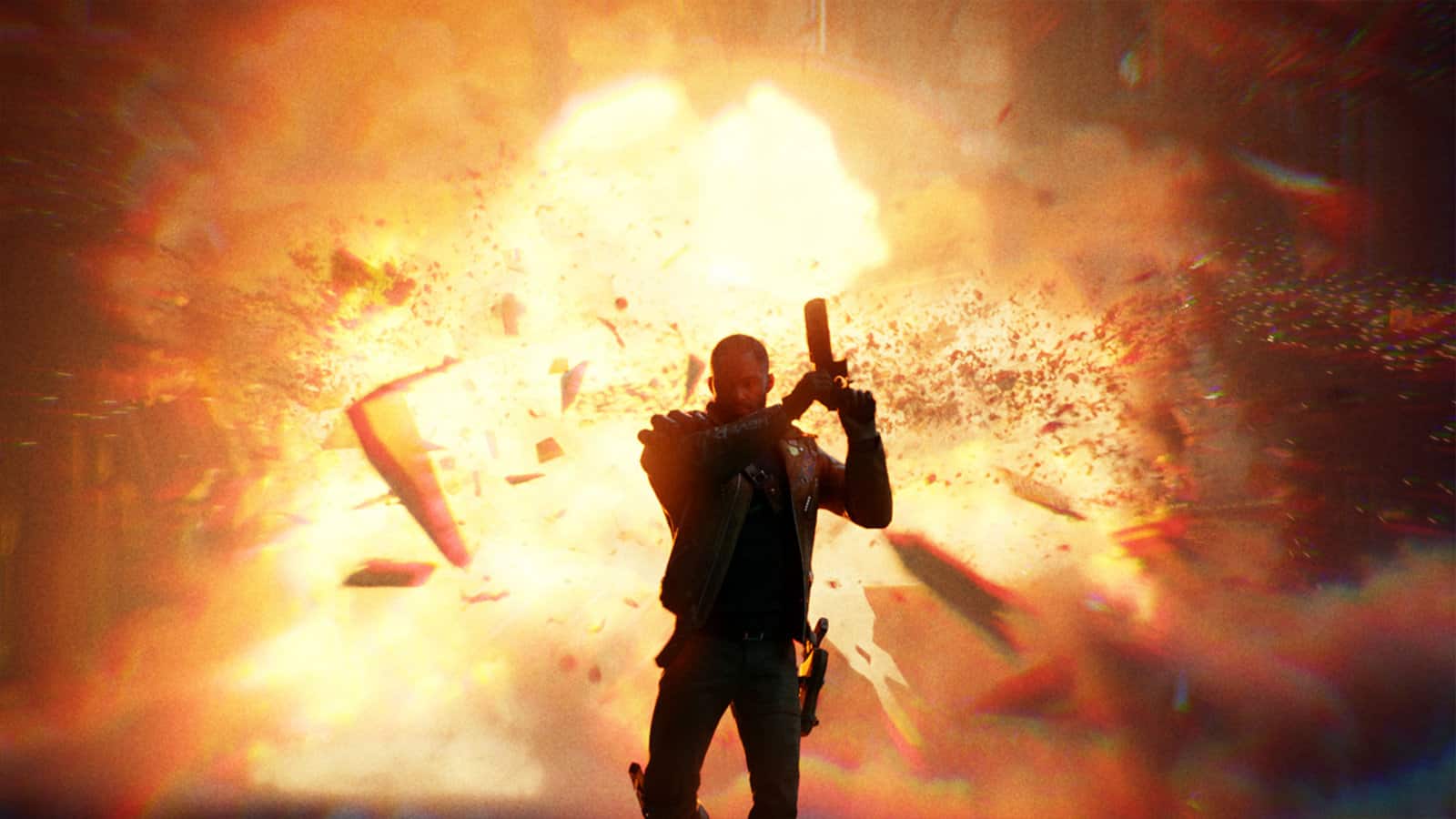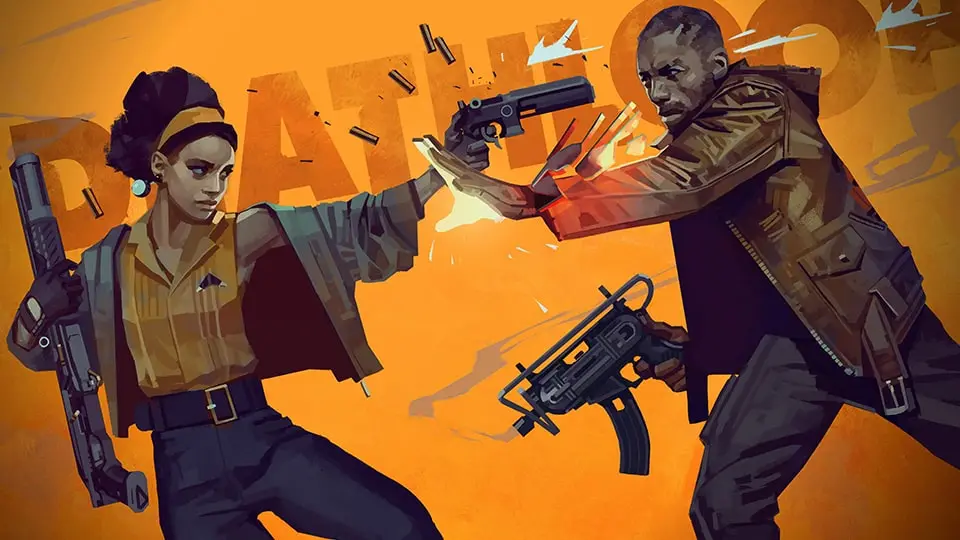Arkane Studios’ Deathloop is shaping up to be one of 2021’s most interesting games — and not just because it’s the centerpiece of the stoush between Microsoft and Sony when it comes to Bethesda’s IPs. Instead, the curiosity stems from what it seems to represent: the most significant rethink and modernization of the immersive sim genre since BioShock. And that is long overdue.
BioShock is a hybrid. It’s a shooter first, though the systemically reactive world is a clear callback to its forebears in the System Shock series. Arkane’s own Dishonored from 2012 was different. Like Deus Ex: Human Revolution before it and Thief after, it stuck to the pillars of the immersive sim genre for a slower-paced, player-driven experience of memorable sandboxes and a plethora of tools.
Prior to release, Dishonored attracted a huge amount of press attention. It likely benefited from the ennui of the late PS3/Xbox 360 generation thanks to its unique aesthetic and the originality of the IP. And the pre-release hype was matched by an incredible critical reception, becoming the sixth-highest scoring game of 2012 according to Metacritic. By all available reports, the critical success was matched by commercial success, with Dishonored becoming the ninth best-selling original game of the 2010s.
However, that player excitement was seemingly not matched by the 2016 sequel or 2017 spin-off, with lower sales reported and Bethesda putting the series to rest after their launches. The follow-up, Prey, was never as good as Dishonored, and the sales figures were reportedly much lower.
Something had to change. And so Arkane was drafted to support MachineGames on Wolfenstein: Youngblood and Wolfenstein: Cyberpilot. The studio’s background shone through in the intricate, hyper-realized environments of Neu-Paris, but those games were shooters and little more. We now know those were akin to a training course.

Arkane Game Designer Dinga Bakaba took to the stage of E3 2019 to pledge that Deathloop follows the same design principles as the studio’s earlier games, but the cinematic trailer presented then and the first gameplay trailer earlier this year both seemed to position the game as a fantasy shooter — a Wolfenstein with combat-useful supernatural powers. That makes sense. After all, the arduous process of learning guard routes does not a sexy trailer make.
The newer “Two Birds, One Stone” trailer circumvents that issue by truncating it. In it, the protagonist Colt has already learned the secrets, meaning the footage can focus on execution. Finally, it shows us the way the characters and world of Black Reef can respond to your actions and that violence isn’t the only method, with a stealthy infiltration causing one of the protagonist’s targets to deviate from his normal habits.
The tendency towards creative solutions to problems is one of the key pillars of Dishonored. In the earlier series, though, that is an often slow, laborious process. Successfully pulling off actions that reshape the way missions play out requires a combination of reconnaissance, stealth, and execution that can easily take an hour. You have one chance to get it right (unless you save scum). And that goes back to the fundamentals of the genre, where player choices matter and the options exist to enable players to do as they please — embodying the paidia school of game philosophy.
This design is apparently anathema to the modern mainstream market where action dominates, and the nature of the play is highly structured in the ludus style. Those games govern the way they are played, whether it’s the fast-paced gunplay of a Call of Duty or the gritty spectacle of an Assassin’s Creed. Going slow is boring; just ask the many critics of Red Dead Redemption II.
The apparent genius of Deathloop is in how it bridges the abyss between those two designs with its premise that there is a time loop that you, as the protagonist, are trying to break. This means you can explore each part of Black Reef as many times as necessary in as many ways as necessary to uncover all of the secrets and possibilities to influence the world. Lovers of immersive sims and stealth games can scope out situations quietly, while everyone else can play it as they would Call of Duty without needing to worry about consequences — the end of the day or the end of a life is a reset button, and you get to try again.
In Dishonored, violent confrontation is always possible, but the early Victorian era-styled weaponry makes it inadvisable. The slick gunplay of Deathloop looks to be ripped straight out of Youngblood, and that combined with Colt’s mission to kill the Visionaries makes mayhem more than viable. That is the crux of the modernization. Deathloop makes mass murder even more of an option than BioShock did, but it will never abandon the core pretence of player freedom.
The inclusion of a novel multiplayer component is another way that Deathloop goes beyond its predecessors to think about the contemporary gaming landscape, though whether that will be a draw remains to be seen.
So far, the game hasn’t captured quite the same level of attention as Dishonored did way back when. Maybe that’s because we haven’t seen enough. Maybe it’s because people remain unconvinced. Maybe it’s because, in the midst of a dawning generation, it’s harder to stand out. Whatever the reason, Deathloop has made fewer waves than it deserves. Where raw potential failed, perhaps corporate controversy can succeed. Or not. In any case, Arkane is putting a clear focus on what made its best games so great and tweaking it to make the design to be more approachable. What more could you want?






Published: Oct 2, 2020 03:37 pm